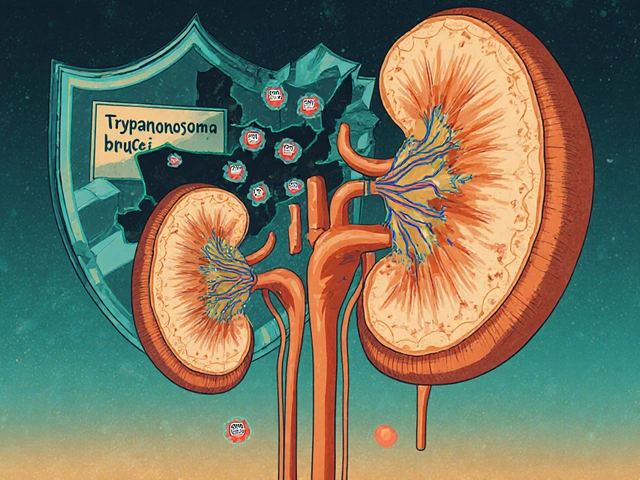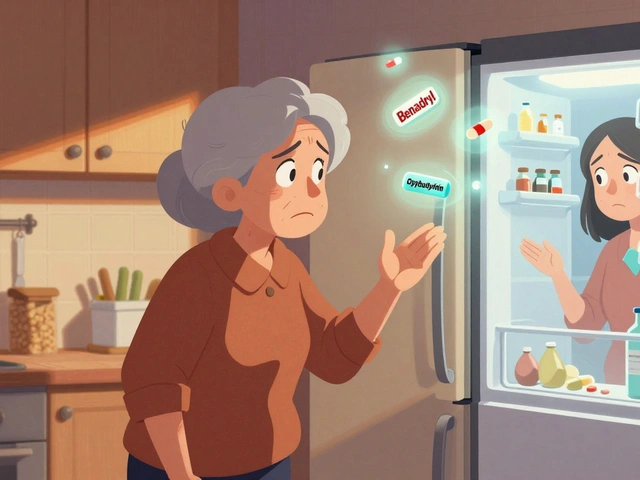Ocular Nutrition: Simple Ways to Keep Your Eyes Healthy
Feel like your eyes are tired after a long screen session? The answer might be on your plate. What you eat directly affects how well your retina works, how clear your vision stays, and even how quickly age‑related problems show up. Below are the nutrients your eyes love and easy ways to add them to everyday meals.
Key Vitamins and Minerals for Vision
Vitamin A is the classic eye‑helper. It turns light into a signal your brain can read, so a lack can cause night‑time blur. Carrots, sweet potatoes, and liver pack a punch.
Vitamin C and E act like antioxidants, fighting free‑radical damage that ages the eye’s lens. Citrus fruits, berries, almonds, and sunflower seeds are cheap sources.
Lutein and Zeaxanthin sit in the macula, the part that gives you sharp central vision. They filter harmful blue light and keep the retina smooth. Dark leafy greens—spinach, kale, collard greens—are the best bet, but you can also find them in fortified eggs.
Omega‑3 fatty acids (EPA and DHA) keep the tear film stable and may reduce dry‑eye symptoms. Fatty fish like salmon, sardines, and mackerel deliver them, and a daily fish‑oil capsule works if you don’t eat fish often.
Zinc helps vitamin A move from your liver to your retina. Red meat, pumpkin seeds, and beans cover this mineral without overdoing it.
Foods and Everyday Habits That Help Your Eyes
Start your day with a spinach‑and‑egg scramble. You get lutein from the greens and zeaxanthin from the yolk in one quick bite. Throw a handful of berries into your oatmeal for a vitamin‑C boost.
For lunch, swap a typical sandwich for a salmon salad. The omega‑3s work while the mixed greens add lutein. If you’re short on time, a pre‑packed salad with a drizzle of olive oil (another eye‑friendly fat) does the trick.
Snack smart: almonds, walnuts, or a small piece of dark chocolate give you vitamin E and healthy fats without the sugar crash of candy.
Dinner can be simple—grilled chicken, roasted sweet potatoes, and steamed broccoli. The sweet potatoes hit vitamin A, broccoli adds vitamin C, and the chicken provides zinc.
Hydration matters, too. Dry eyes feel gritty, and staying in the right fluid balance helps the tear film stay smooth. Aim for 8 glasses of water a day, and swap sugary drinks for herbal tea.
Supplements are handy if you can’t hit the food targets every day, but choose reputable brands. A daily multivitamin with lutein, vitamin C, and zinc usually covers the basics. Avoid mega‑doses unless a doctor recommends them—more isn’t always better.
Watch out for excess salt and processed foods. They can raise blood pressure, which may worsen conditions like ocular hypertension or uveitis. Keeping sodium low supports overall eye pressure and reduces the risk of inflammation.
Finally, pair good nutrition with regular eye check‑ups. Even the best diet can’t fix structural issues, but it can slow down deterioration and make a doctor’s advice easier to follow.
Bottom line: fill your plate with colorful veggies, fatty fish, nuts, and a splash of citrus. Stay hydrated, pick a quality supplement if needed, and you’ll give your eyes the fuel they need to stay sharp for years to come.
What Is Ophthacare? Complete Guide to This Eye‑Health Supplement
Discover what Ophthacare is, its key ingredients, who should use it, dosage tips, and answers to common questions about this eye‑health supplement.
View More




